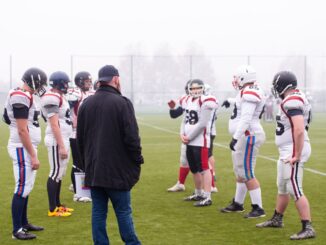
One thing was clear. It was going to be a tough season of coaching girls youth basketball.
How did I know?
Well, I was in my first year of being on the board of directors for the city basketball program and I had rosters for every girls team—including player ratings, which had been included by mistake.
I knew which teams had the experienced players and which didn’t.
We didn’t.
Of 16 teams in our fourth-fifth grade division, our total roster was ranked 15th. The only team ranked lower was in the opposite division and we weren’t scheduled to play them. The likelihood of a winless season loomed.
On the other hand, two teams were stacked with experienced players. In fact, each had eight players who would go on to make their high school teams.
I had one.
Melissa was our lone “star.” She was a small girl with a big heart, big basketball dreams, and good hand skills.
Except for her, we were a rag-tag group. Six of our players had never played any kind of organized sport. One was a soccer player who later became a high school swimmer. One was a somewhat tall softball pitcher. And one was an accomplished dancer.
Although their hand skills were awful, the one thing that every one of them could do was move! Overall, they had great feet, awareness, and an eagerness to succeed.
We worked all season on dribbling and shooting, but our team drills focused on our only hope of salvation:
Defense!
I’ve hardly ever used a 1-2-2 zone but it was right for that team. It matched our personnel, it was geometric, and it was easy to learn, which would enable us to do what I thought we could do best—attack, attack, attack!
I would love to tell you that we mastered everything and we won the city championship, but we didn’t. However, we won nearly all of our games the last half of the regular season and we advanced to the semifinals in the postseason tournament.
Those were nice accomplishments, but nothing compared to one of the greatest games I’ve ever seen.
We were the Hawks and we were 2-4 coming into our game with the highest-rated team in the city, the undefeated and untouched Eagles.
In addition to their advantage in rosters and records, we had a problem.
Melissa was sick. She was running a fever and was laying on our bench. That meant that our only player capable of handling the ball under pressure wouldn’t be playing. Nonetheless, she wanted to be there for her teammates.
Just four minutes into the game, we were behind 12-0 and I could see the girls’ spirits begin to drop.
I called a time out.
First, I switched Tawni, our somewhat-tall softball pitcher, to point-center and parked her at the top of the key.
Since full court press wasn’t legal until the final eight minutes of the game, we had free range to dribble to half-court, then pass high to Tawni who wouldn’t have to dribble but could hold the ball high and distribute from there.
Then, I told them, “You are better than this and you know it. You see that score now. We’re behind by 12. I want you to prove to yourselves that you can play without Melissa and you can play the next 35 minutes dead even! I know you can! You’re one of the best defensive teams in the league so play defense with all of your heart and watch what happens! Who wants to go for it?!?”
Their faces filled with determination and their eyes flashed and I just knew they were ready.
They went to work and they were magnificent. They proved what nine determined girls can do when they decide to look away from what they can’t do and focus on what they can.
How well did they play?
Well, with two minutes left, the score was 25-23.
We had 25.
The Eagles called a time out.
Despite their advantages, the Eagles simply had not been able to get open shots because our girls sprang to the ball, rotated, communicated, and attacked.
When play resumed, the Eagles tried a new offensive scheme but they still could not get any open.
With time running down and their panic rising, an Eagle guard dribbled along the three point line and suddenly flung an off-balance, sidearm shot toward the basket. There was no way a shot like that would ever make it.
Except it did.
I called time out. We were down 26-25 with eight seconds to play.
I anticipated a full court press by the Eagles and I also sensed it would be front loaded.
My plan was to pass over the top from one tall girl to another. I asked Tawni if she was good enough as a pitcher to hit a watermelon from 70 feet away. She nearly laughed with how easy that would be.
I put Channelle, our center, at our free-throw line and told her, “Just relax, catch the ball, turn, and shoot a free throw,” something she did pretty well.
Was it the right strategy?
Honestly, there’s no way to tell because the Eagles came out in a defense that was a mess. All five Eagle defenders were in the front court.
That left Channelle, a substantially built, somewhat tall girl wearing a red shirt to stand unnoticed and alone in our half of the court.
Tawni brought the ball up over her head. She released her pass. It looked perfect!
It was perfect!
The ball sailed straight to Channelle’s hands!
It also sailed through Channelle’s hands to land out of bounds.
The buzzer blared.
We lost.
Or did we?
There are many who will steadfastly tell you that winning is all that matters and coming close is just for losers.
I wish they would have been there to see nine young girls with eyes full of excitement and pride for what they had just done.
We won all of our remaining regular-season games plus two games in the city tournament. We lost by four points in the semifinal to that other team with the highest roster.
After that game, a half-dozen parents from the opposing team told us that they had never seen any team play defense like our girls did.
Losing that game wasn’t fun but being respected by our opponents and being noticed for a season of hard work, progress, playing together, and playing defense like none other were enough to salve the sting.




